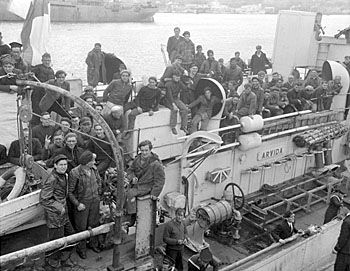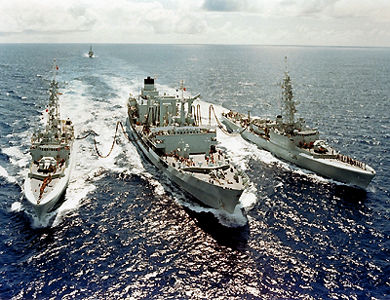Article
12e Régiment blindé du Canada
12e Régiment blindé du Canada (12e RBC) is the junior of three regular armoured regiments in the Canadian Army. The regiment was established in 1871 as a militia infantry battalion and was converted to an armoured regiment in 1936. In 1968, the Regular Force regiment was formed, designated 12e RBC. The regiment or detached squadrons have served in peace operations and in Afghanistan. 12e RBC has been based at CFB Valcartier, Quebec, since 1968 and is part of 5 Canadian Mechanized Brigade Group, 2nd Canadian Division.















